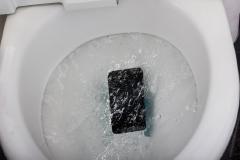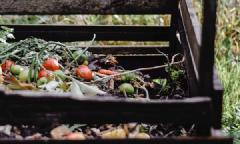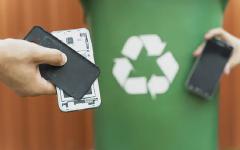Categories
5 tips to ‘Rethinking Waste’ with The Rethinkers podcast
6 minute read
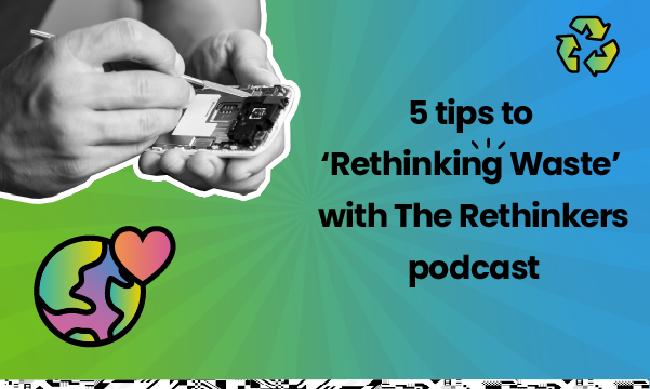
giffgaff is proud to sponsor Katrina Ridley’s brilliant new podcast, looking at all the ways the world around us is changing, and honing down some practical tips to help you make a difference.
It’s episode 8 of The Rethinkers podcast, and this week is particularly special as one of the guests is our very own Social Responsibility Lead, Chloe-Louise Armer.
The theme for the episode is ‘Rethinking Waste’, exploring not only the different types of waste, but also thinking about ways we can stop waste at the source.
Behind the mic, the wonderful Chloe introduces us to all things e-waste. While Doug McMaster, ‘zero-waste chef’ chats about his ambition to eliminate bins from the kitchen at his sustainable restaurant, Silo.
You can find the full podcast series on Global Player. But before you do, let us tease you with our top 5 takeaways from this week’s episode.
1. Think prevention, not mitigation
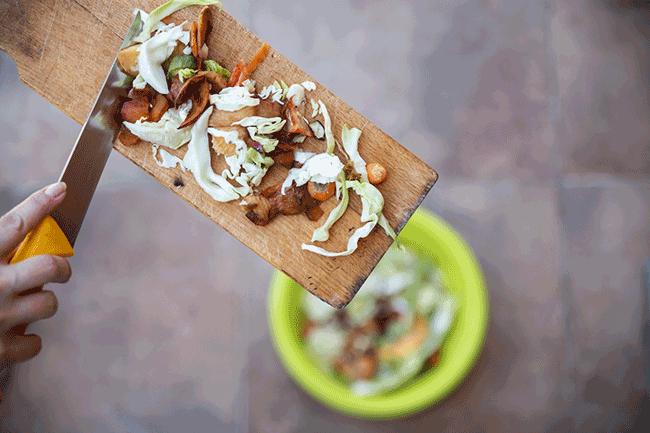
Doug’s goal of ditching his bin is ambitious, but it’s certainly got us thinking. After all, if there was no waste in the first place, we’d have no need for composting, recycling or even landfill.
So, if the only way to become truly sustainable is to have no waste to throw away, how might we go about it, and indeed, is it even possible?
For Doug, this switch to a more preventative way of thinking is the ultimate route to a more sustainable future. And, as he’s already proven with his various green-kitchen-antics, it’s perfectly possible.
In practice, waste prevention is about trying to cut waste at the source. This means introducing reusability into your lifestyle and being more conscious of buying only what you need.
Here are a few simple tips to get you started:
- Swap single-use plastic bags for reusable ones made from cloth.
- Stop buying plastic bottles, carry your own refillable bottle with you instead.
- Make a weekly meal-plan and make sure you only buy the ingredients you need.
- Buy second hand to keep furniture, clothes and electronics in the product life-cycle for longer.
2. Not all waste looks like waste
When I say waste, what’s the first thing that comes to mind?
For many people it’s things like used containers, broken crockery or gone-off food. In other words, things that are broken or unusable. But that’s not always the case.
As Chloe shows us, there are plenty of types of waste that are fully intact. Think unwanted clothes, that stack of toys the kids have outgrown and, the big one, e-waste.
Waste doesn’t necessarily have to be broken, sometimes it’s just no longer relevant. This is especially problematic with things like e-waste (electronic waste), because the materials aren’t natural and a lot of them are finite resources.
Gold, for example, is a common material found in mobile phones, and needs to be taken out of the phone so it can be reused. This is a highly technical and expensive process, and is one reason recycling phones is so difficult.
And when you consider that the average person upgrades their phone every 12-24 months, it’s easy to see how quickly e-waste is stacking up.
There is an answer though: selling or recycling your electronics.
At giffgaff, we care about reducing waste. That’s why we’ve made it super simple for you to recycle your phone with us. We’ll wipe and refurbish your handset, giving it a new lease of life so someone else can enjoy the phone for years to come. Or, if we can’t refurbish it, we’ll work with our partners to recycle it.
And the best bit is that you’ll get a little pocket money for your old phone. Or, if you’re feeling really generous, you can offer to give the money to charity instead.
If you can’t sell your phone to us, there’s plenty of places across the UK which now take and recycle old tech.
3. Vote with your money
It can be easy to pass off responsibility when it comes to waste. Especially when there are so many big companies producing tons more waste than you could ever imagine.
But as Chloe points out, you as the consumer have far more power than you think to hold companies accountable for their sustainable practices, whether that’s by writing to the businesses you like to ask about their sustainable practices, calling them out more publicly through social media, or simply voting with your money.
Where and how you choose to spend your money really does make a difference. Do your research before you buy. Check for eco-ratings, sustainable pledges and charity partnerships to make sure the company you’re buying from is doing their bit to support the planet.
However, if you do stop spending with a company based on sustainable choices, be sure to let them know why. You never know, they might be willing to step up and make a change.
4. If you can repair it, repair it
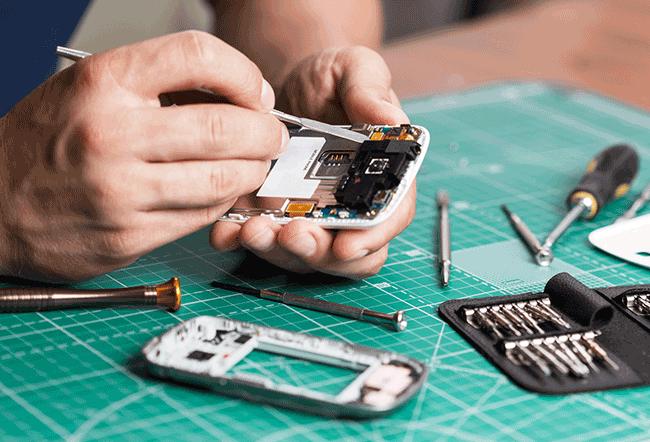
You’d be surprised how many people would rather replace something that’s slightly damaged, than get it repaired.
In fact, Chloe reveals that of the 1.4 billion smartphones produced and sold every year, in Europe only around 15% are getting properly recycled.
And this doesn’t only go for electronics. Our clothes, shoes and even furniture could all have much longer life spans if we committed ourselves to upcycling and repairing, rather than replacing at the first scrape or tear.
So the next time something you love falls a little worse-for-wear, start by asking yourself if there’s anything you could do to extend its life.
After all, a new phone screen, replacement zip on your favourite jeans, or a new heel for your left work shoe is not only more sustainable than replacing the item entirely, it’ll also work out a lot cheaper.
5. Do your best today and look out for innovation tomorrow
All this talk of sustainability and the state of the planet can be scary. But both Chloe and Doug were keen to show why we shouldn’t let it get us down.
We’ve all seen how quickly the world can change. Just look how far sustainable technology and recycling have come in the last decade.
50 years ago, we didn’t even have mobile phones, let alone have ways to recycle them. So who’s to say there won’t be another big breakthrough around the corner?
We all have a part to play in living more sustainable lifestyles. However, we can only do the best we can at this moment in time.
If you’re suffering from eco-anxiety, take a deep breath and remember that every change you make to live a little greener is having a positive impact on the world around you. An impact that everyone will be grateful for tomorrow.
But you should also remember that you’re not alone, and our friendly giffgaff community is always on stand-by with support if you’re struggling stress or other issues.
Want to learn more?
That’s all the insider scoop we’ve got for today. Guess there’s nothing else to do now but head on over to the podcast and listen for yourself.
There’s a new episode of The Rethinkers being released each week, so stay tuned to learn how you can live your most sustainable life.
Listen on Global Player, today. And be sure to let us know your favourite bits with us on the giffgaff community.
